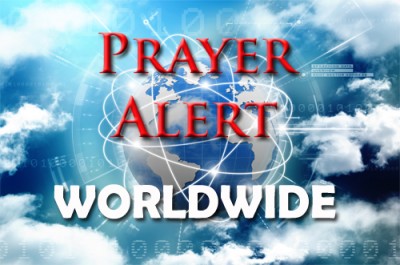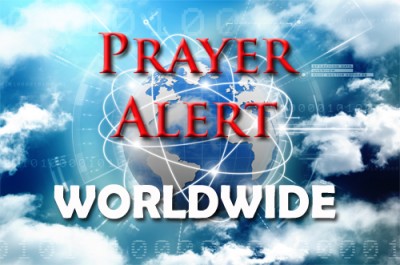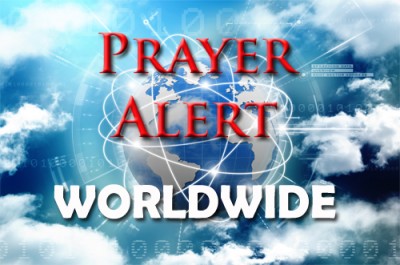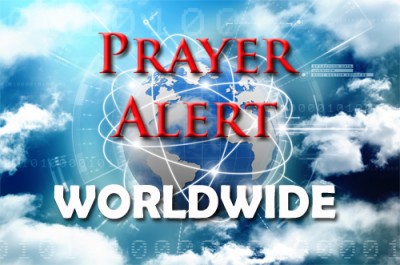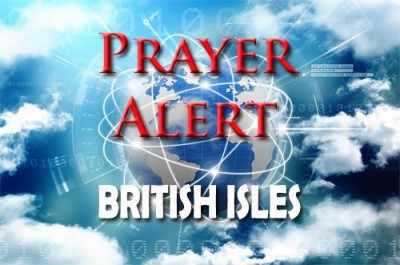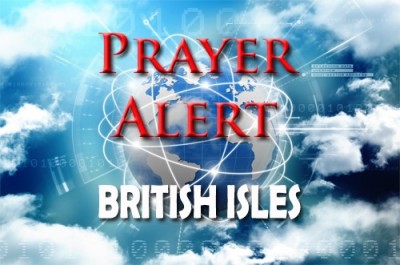USA: Florida child sex trafficking investigation
19 Nov 2020There have been ‘Save the Children’ demonstrations to protest against child sex trafficking and paedophilia at home and abroad. After a two-year investigation into a Florida sex trafficking network, over 170 people have been charged. This has been part of a two-year investigation uncovering a sex-trafficking network in Florida, leading to an ‘unprecedented’ number of arrests. Among those netted were a local candidate for office, a teacher, and a former chairman of the fundraising arm of Florida State University athletics.
For many Christians, times, location and form vary greatly as they seek to worship God safely. On Sunday morning in a village in Colombia Gabriel, an indigenous Christian wakes up to prepare a service which he will lead later that day. Shortly afterwards, he leaves his house and goes to a deserted place, in the middle of the forest, hidden from everyone. In his village, being a Christian results in persecution. Christians do everything to keep the peace by participating in local activities, meetings, and traditional rituals. The latter is an obligation that Christians must fulfil, otherwise they are arrested, questioned, punished and detained until they renounce their faith. They want to stop engaging in traditional rituals that go against Christianity, but it is not easy. They gather in hidden places to pray, sing, and study the Bible.
UAE: two summits as Bahrain and Israel meet
19 Nov 2020The kings of Jordan and Bahrain flew to Abu Dhabi for an important meeting with crown prince Mohammed bin Zayed Al Nahyan, as Bahrain’s foreign minister Abdullatif al-Zayani was in Israel meeting his Israeli and American counterparts. These important and unprecedented meetings illustrate the tectonic changes emerging in the Middle East. The tone was different in Jerusalem and Abu Dhabi. A Gulf Air flight which arrived in Tel Aviv, with Zayani and US envoy Avi Berkowitz on board, was the first of its kind; very likely Gulf Air will soon join Flydubai and Etihad, which have announced regular flights to Israel. Meetings about peace and the brave new world illustrates how Israel and the Gulf States are moving toward. This area improvement has been midwifed by the USA.
Armenia has begun handing over liberated territory to Azerbaijan as part of a peace accord that ended six weeks of fierce fighting over the Nagorno-Karabakh region. Residents of Azerbaijan's Kalbajar district have been occupied by Armenian forces for decades. Now they begin a mass exodus of the mountainous province in the days leading up to the official withdrawal day at the end of November. Some set their homes on fire rather than leave them for Azerbaijanis. A Russian peacekeeping contingent has set up checkpoints and positions as part of the terms that Armenia yields territory which Azerbaijan's forces gained in the fighting. Putin told his Azerbaijani counterpart to take care of churches, monasteries and shrines in areas that Azerbaijan gets under this cease-fire agreement. Moscow's peacekeeping mission, which the military said included soldiers who previously were stationed in Syria, comprises some 2,000 troops for a renewable five-year mission.
She tried to commit suicide several times
12 Nov 2020At the Global Outreach Day, Christian felt that there was someone in the audience who had attempted suicide in the last couple of weeks. Using the microphone, he shared this word of knowledge and some other words of encouragement. A woman who was part of the outreach team then gave her testimony publicly for the first time. After the testimony, a young woman approached the ministry team and shared private details about her life. She said she had been raped several times in her life as a child and had already tried suicide several times: the last time was six days earlier. After the team shared the Gospel with her, she experienced the presence of Jesus and gave her life to him. She felt a wind blow on her back, not understanding what was going on. The team explained this could be the Holy Spirit who wanted to reveal himself and to touch her life. She said she will not attempt suicide again.
Prayer meeting has continued for 24 years
12 Nov 2020Only New Year’s Day and Thanksgiving interrupt the daily 6 am prayer meetings that Pastor David Galvan has held since 5 February 1996 at New Life Church in Dallas. On Thanksgiving, the church holds an annual baptism in an area lake, incorporating prayer into the meeting. On New Year’s Day, the church is in worship and fellowship from 7 pm on New Year’s Eve to the early hours of the New Year, including prayer. Other holidays, including Christmas, are included in the daily schedule. When Covid-19 restrictions briefly limited gatherings to ten people months ago, Galvan transitioned the daily prayer hour from the church’s 190-seat chapel to a conference call. Attendance has more than quadrupled. ‘All these years up to the pandemic, it attracted from 5 to 12 people on weekdays and on Saturday it was about 70. Now we’re averaging 35 to 50 daily’.
Huge rise in harmed or killed babies
12 Nov 2020Ofsted's chief inspector revealed there was an alarming 20% rise in babies being killed or harmed during the first lockdown. Out of 64 babies which were deliberately harmed in England, eight died. Some 40% of the 300 incidents reported involved infants, up by a fifth on 2019. The ‘toxic mix’ of isolation, poverty and mental illness caused the March to October spike. Health staff and social workers were hampered by Covid restrictions. Many regular visits could not take place; others were carried out by telephone or video links. When schools closed in March, children's charities and teachers expressed fears that children at risk would be left even more vulnerable under lockdown. This was one reason why schools stayed open for vulnerable children, but babies can't tell an adult if there's a problem. Often, abuse is only uncovered when there's a critical injury, or it's too late - another young life damaged or lost.
Change in mood at No 10
12 Nov 2020Most people haven’t heard of Lee Cain but the resignation of the prime minister's top aide raises the question of whether it heralds a changing of the guard and a new Johnson era, now that Brexit is almost done. Mr Cain is part of the Vote Leave team that has dominated the PM’s first 18 months in office. He and Dominic Cummings have shaped his premiership more closely than anyone else, with an iron grip on the operation of No 10. But during that time, relations have soured between Downing Street and many ministers, as well as many Conservative MPs concerned about the leaks, the U-turns and the way things are run. Pray for the Holy Spirit to make a clean sweep through parliament, replacing ‘power struggles’ with harmony and positive influence based on facts. Pray for a new era in which government ministers practise peaceful relationships where there has been tension.
